Taiwan Tech, University of Sydney Team Up to Foster Semiconductor Talent.
Taiwan Tech joined hands with the University of Sydney to strengthen Taiwan-Australia collaboration in semiconductor technology and international talent development. From June 23 to 27, 2025, the two institutions co-hosted the 2025 Taipei-Sydney Semiconductor Bootcamp. The camp was jointly supported by the Semiconductor Sector Service Bureau (S3B), the Research and Prototype Foundry (RPF), and the School of Electrical and Computer Engineering at the University of Sydney, aiming to build a cross-national academic and industrial bridge in the semiconductor field.
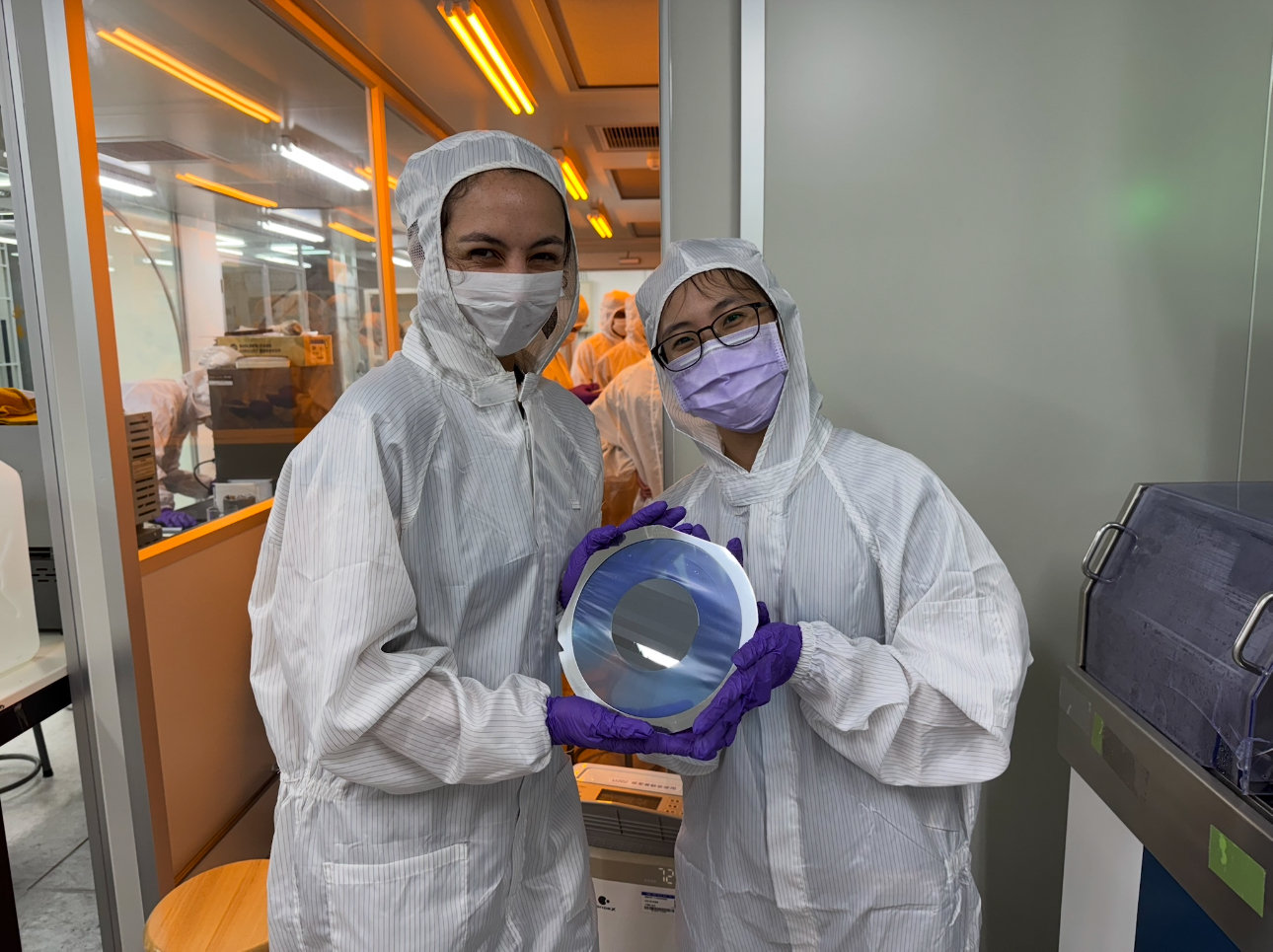
Participant Jaime Pryor (left) and the teaching assistant (right) showcase a wafer after completing the chip dicing process.
The five-day bootcamp brought together students and faculty from the University of Sydney and students from Arizona, USA, forming multinational learning teams in Taiwan. Participants engaged in intensive courses, hands-on workshops, and industry visits. Centered around the theme of “Semiconductor Technology and Industry Practices,” the program included technical lectures, research presentations, intercollegiate exchanges, and on-site company visits - aiming to strengthen students’ professional foundation and global perspective in the semiconductor field through both theoretical and practical learning.
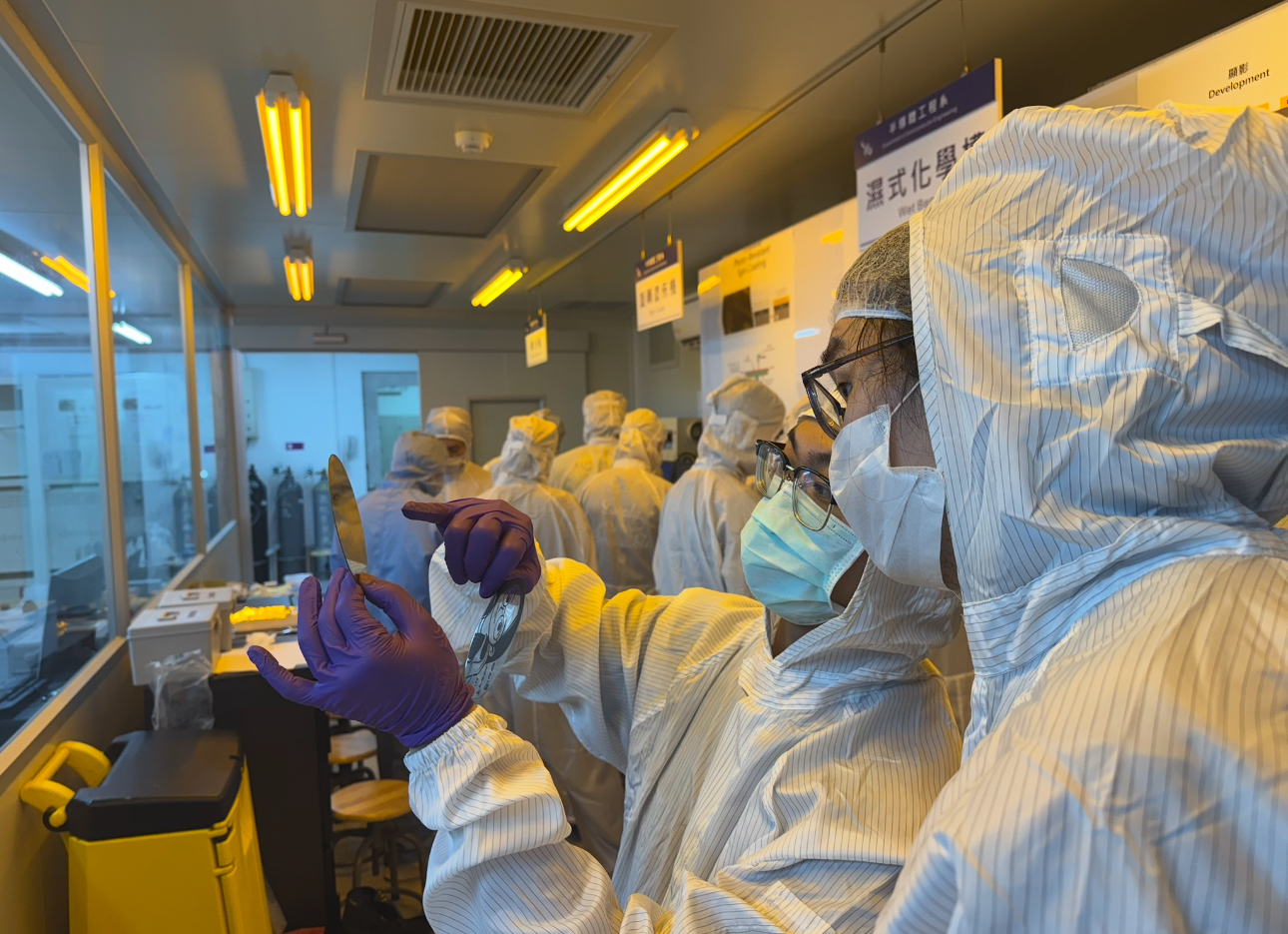
Staff from the Semiconductor Device Processing Center guided participants in observing the wafer morphology after photolithography and development.
This event was organized by Professor Jeng-Ywan Jeng, Director of the Taiwan High-Speed 3D Printing Research Center at Taiwan Tech. Professor Jeng also serves as an independent board member for MPI Corporation and Powertech Technology Inc., and was formerly a visiting professor at the University of Sydney. He emphasized that as Taiwan is a global hub for semiconductors, it should strengthen collaboration with Australia, which is also actively developing its semiconductor industry. Professor Jeng further noted that future cooperation could span diverse areas, including the establishment of dual-degree programs or internships, the application of biochips in smart agriculture, joint R&D on underground communication systems, and green hydrogen chip design for the renewable energy sector - highlighting Australia’s potential and opportunities in semiconductor development.
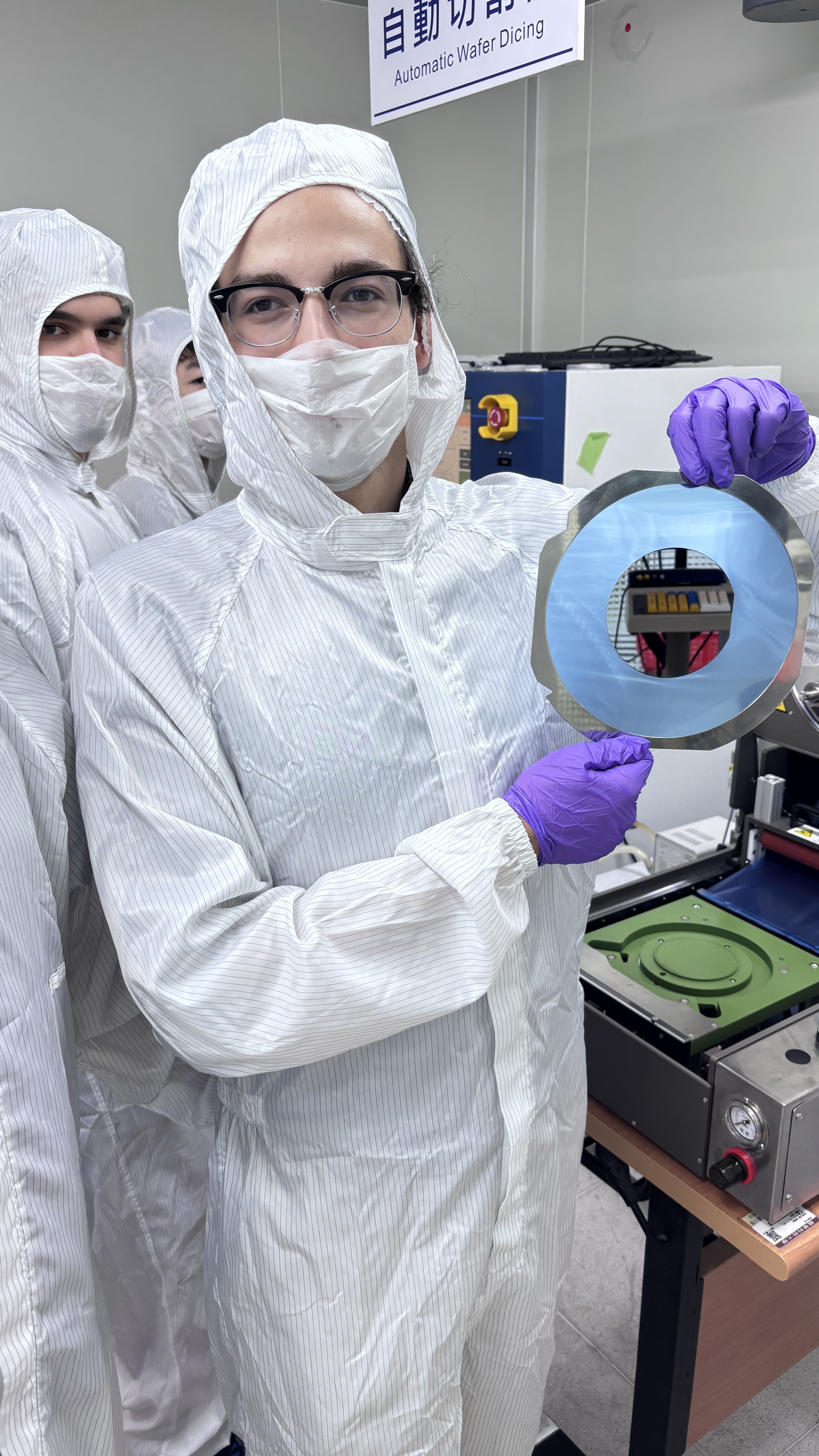
Participant Colin Raimond Zuehlke displays a silicon wafer mounted with adhesive backing.
During the bootcamp, the faculty and students visited several key academic and industry institutions in Taiwan, including the TSMC Innovation Museum, National Tsing Hua University’s EUV Lab, NYCU’s IC Design Lab, the Taiwan Semiconductor Research Institute, and companies like TAIWAN CARBIDE and Powertech Technology Inc. They also toured the semiconductor production line at Lunghwa University of Science and Technology, gaining hands-on experience in the full fabrication process - from exposure and development to packaging. Participants even created their own circuits and laser-engraved their names, gaining deeper insight into semiconductor manufacturing.
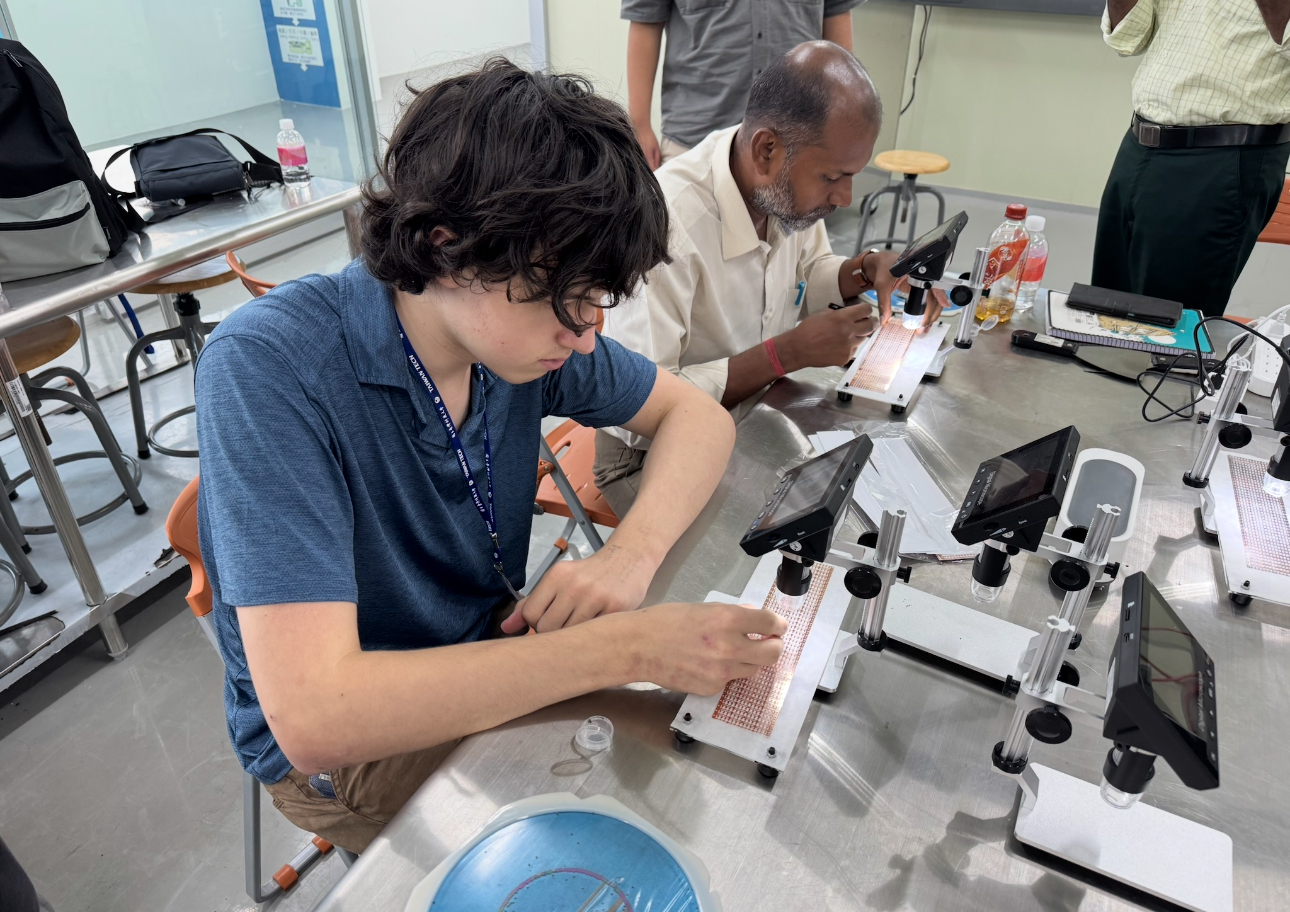
Participant Harry Le Poer Trench applies solder paste to a chip during hands-on practice.
In addition, the Bootcamp featured a series of keynote lectures. Highlights included DIGITIMES analyst Yi-Ping Huang’s insights on global semiconductor trends, Director of Taiwan Tech Advanced Semiconductor Institute Shih-Hsiang Hsu’s introduction to silicon photonics, a virtual presentation on Australia’s semiconductor landscape by Nadia Court from the Semiconductor Sector Service Bureau (S3B), and a deep dive into the critical role of metals and ceramics in the semiconductor supply chain by former Topco Scientific chairman Dr. Chien-Yung Ma.
Participant Muditha Ekanayake remarked, “This is an incredible opportunity. TSMC is pioneering 2nm EUV technology and commands 90% of the market. It’s a driving force behind Moore’s Law and new chip architectures. It’s truly an honor to witness this firsthand.”
Observer Olivia Morberger from the University of Sydney’s S3B added, “We don’t have anything like this in Australia - no such access or infrastructure. For these students, seeing how the industry works behind the scenes is an invaluable experience. I just want to say a heartfelt thank you. We definitely hope this collaboration continues.”
With a strong emphasis on both theory and hands-on learning, along with in-depth industry visits, the 2025 Taipei–Sydney Semiconductor Bootcamp not only showcased Taiwan Tech’s commitment to global research collaboration, but also marked a significant milestone in nurturing the next generation of semiconductor talent and advancing cross-border innovation between Taiwan and Australia.
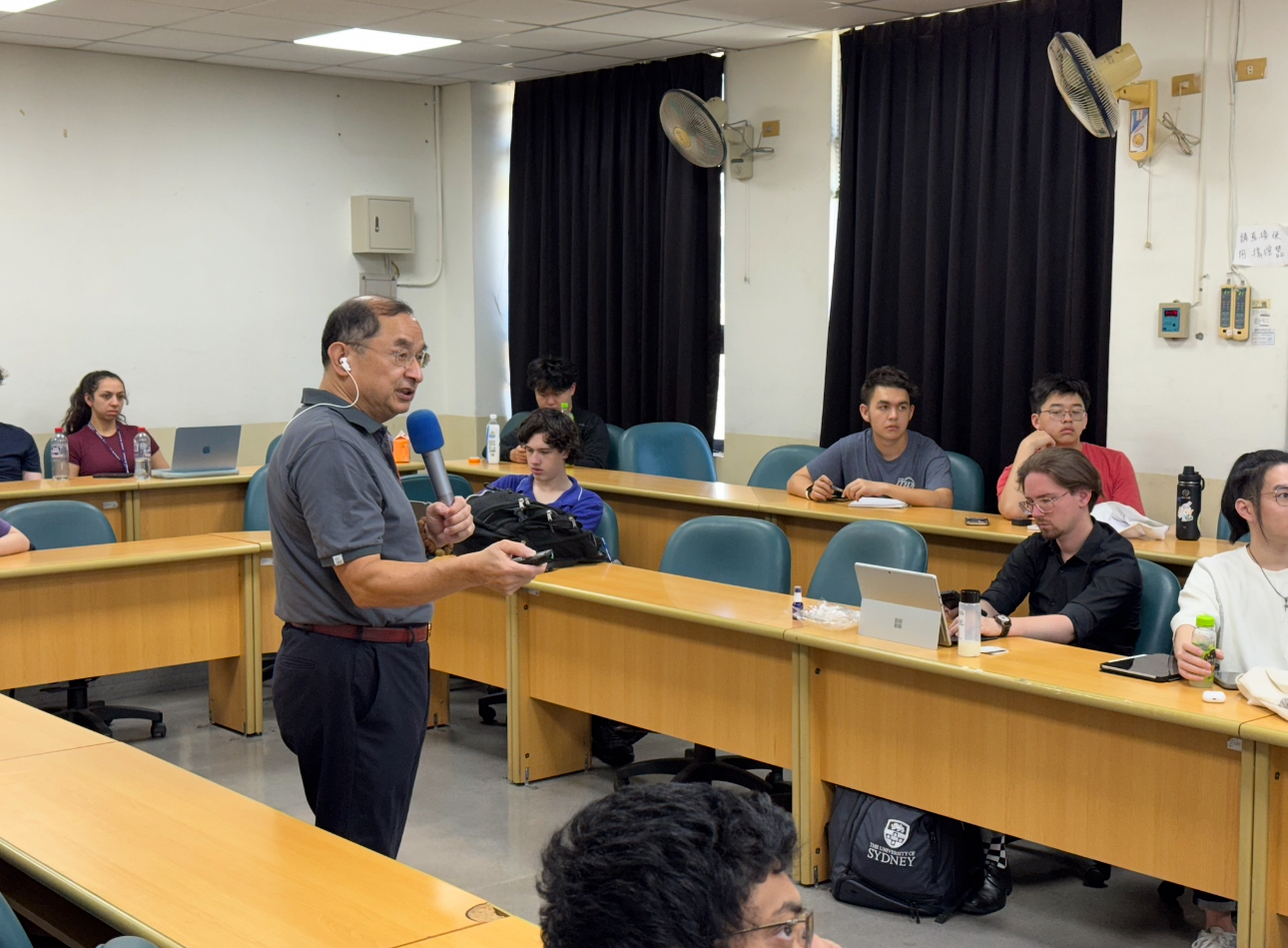
Professor Jeng-Ywan Jeng, the event organizer, gave a detailed explanation of Taiwan's semiconductor economy and provided an analysis of TSMC’s financial reports.